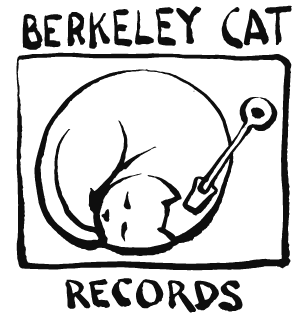Kansas City Kitty and Georgia Tom – “How Can You Have The Blues?”
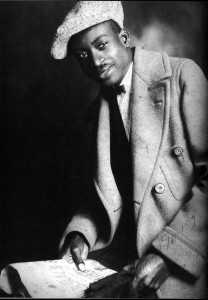 From Kansas City Kitty & Georgia Tom we get this upbeat blues number, “How Can You Have the Blues,” a flirty duet about a woman who appears to have it all, but is continually bogged down by depression. The name Kansas City Kitty may not ring any bells with the most enthusiastic American blues aficionados. It could be because there is a mystery behind the true identity of this sexy-voiced blues woman, but what we do know is that this track, recorded in 1930, features Thomas A. Dorsey, with a way out-of-character performance, on piano and vocals, playing under his popular pseudonym Georgia Tom. With its fantastic melody and conversational blues style, this number lends truth to the idea that money can’t buy you happiness. I chose this “Back in Time” version because it sounds the best.
From Kansas City Kitty & Georgia Tom we get this upbeat blues number, “How Can You Have the Blues,” a flirty duet about a woman who appears to have it all, but is continually bogged down by depression. The name Kansas City Kitty may not ring any bells with the most enthusiastic American blues aficionados. It could be because there is a mystery behind the true identity of this sexy-voiced blues woman, but what we do know is that this track, recorded in 1930, features Thomas A. Dorsey, with a way out-of-character performance, on piano and vocals, playing under his popular pseudonym Georgia Tom. With its fantastic melody and conversational blues style, this number lends truth to the idea that money can’t buy you happiness. I chose this “Back in Time” version because it sounds the best.
Alonzo Yancey – “Everybody’s Rag”
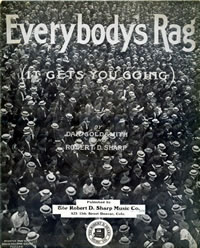
Ragtime is known as “the music that got lost” – mostly because jazz stole its thunder and captured the public’s attention after 1917. Ragtime showcases brilliant pianists like Alonzo Yancey, the lesser known of the Yancey brothers. Alonzo, raised in Chicago, recorded “Everybody’s Rag” in 1943. He serves his piano straight up, and one can only imagine what it’s like to move your fingers as fast as this melody requires. A compelling and ferocious performance.
Jelly Roll Morton – “I Thought I Heard Buddy Bolden Say”
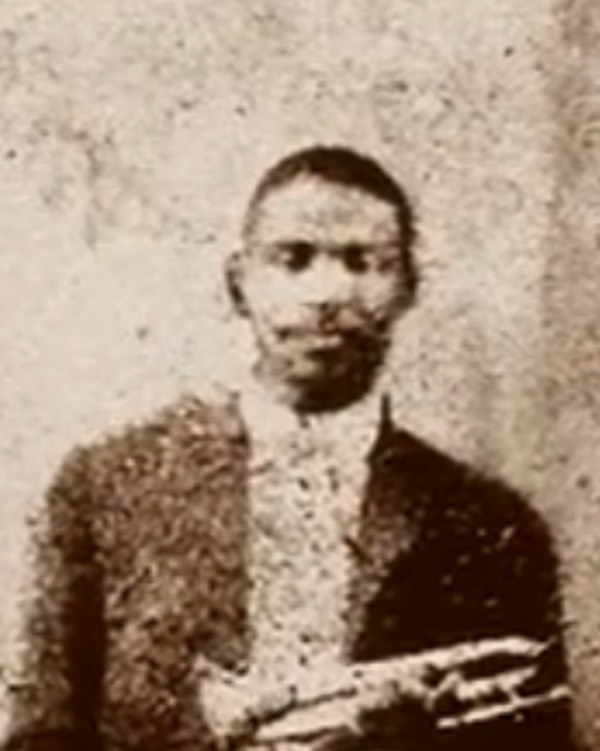
Rare image of Buddy Boldon
The man who claims he invented Jazz, Jellyroll Morton, wrote this song in tribute to the 1st man to play the coronet in what was referred to as ragtime, or Jass. Known in the Jazz community as “King” Bolden, Buddy was a New Orleans bandleader in the early 1900’s featuring an improvisational style that supposedly led to more musical experiments, and finally Jazz. Although I couldn’t find any Buddy Bolden recordings, here’s the next best thing, the inventor of Jazz, singin’ about his hero.
Woody Guthrie – “Tear The Fascists Down”
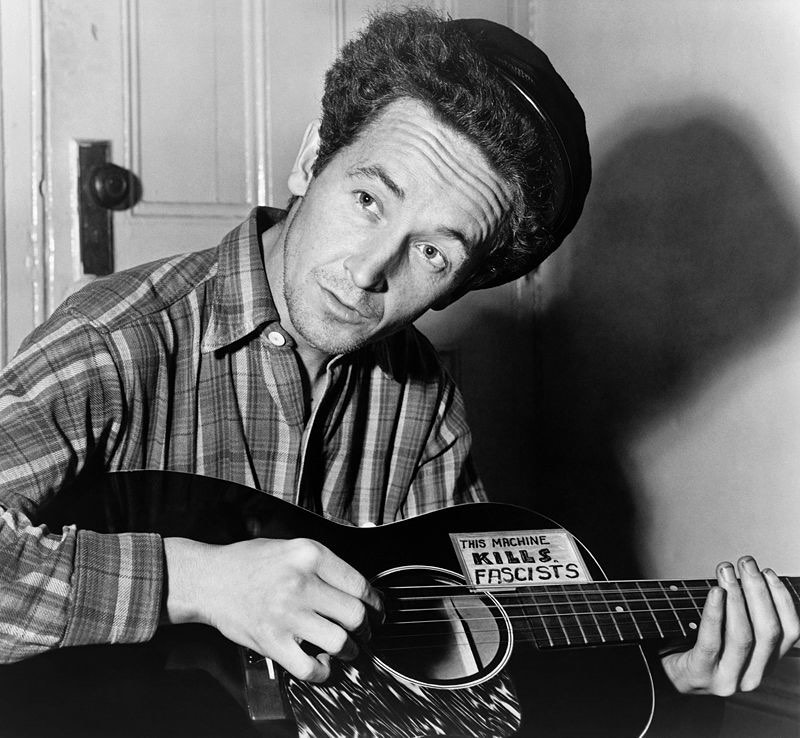
This man is a towering figure in the American Folk scene, writer of “This Land Is Your Land” who influenced so many of the great American songwriters (Bob Dylan for example.) He hated fascists so much he wrote this song about the rampant ideology tearing Europe apart.
Scrapper Blackwell – Nobody Knows You When You’re Down and Out
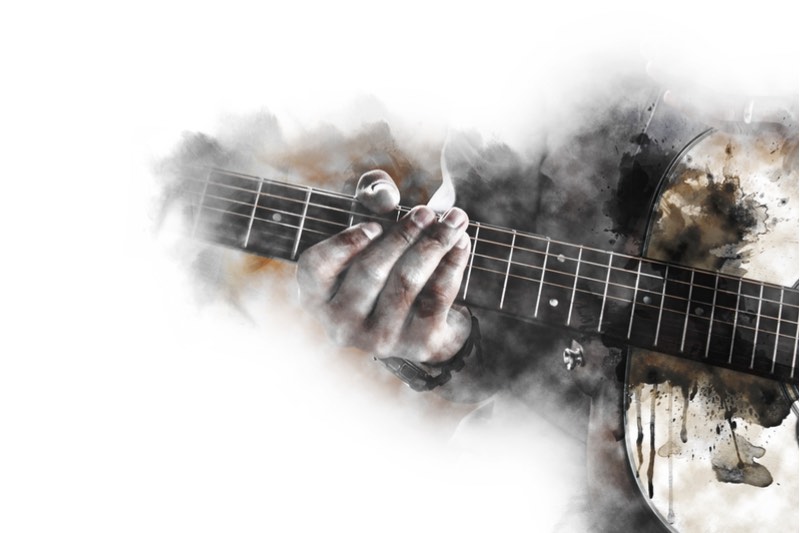
It took me a while to adjust to Scrapper’s guitar playing. Not only is he a self-taught guitarist, he built his own guitar out of a cigar box and wire. As you can guess by his name, he was a rather fiery character better known as part of a duo with Leroy Carr, they had a hit with “How Long Blues” and toured most of the Midwest. This song defines the “Blues.” I highly recommend this and have grown to like Scrapper’s guitar style.
Bo Carter – “Your Biscuits Are Big Enough For Me”
Bo Carter was the leader of the Mississippi Sheiks. In 1928, he recorded the original version of “Corrine, Corrina,” which later became a hit for Big Joe Turner. His solo work is a lot more suggestive. This song is a perfect example of Bo’s “Dirty Blues.”
Blind Willie McTell – “You Was Born To Die”
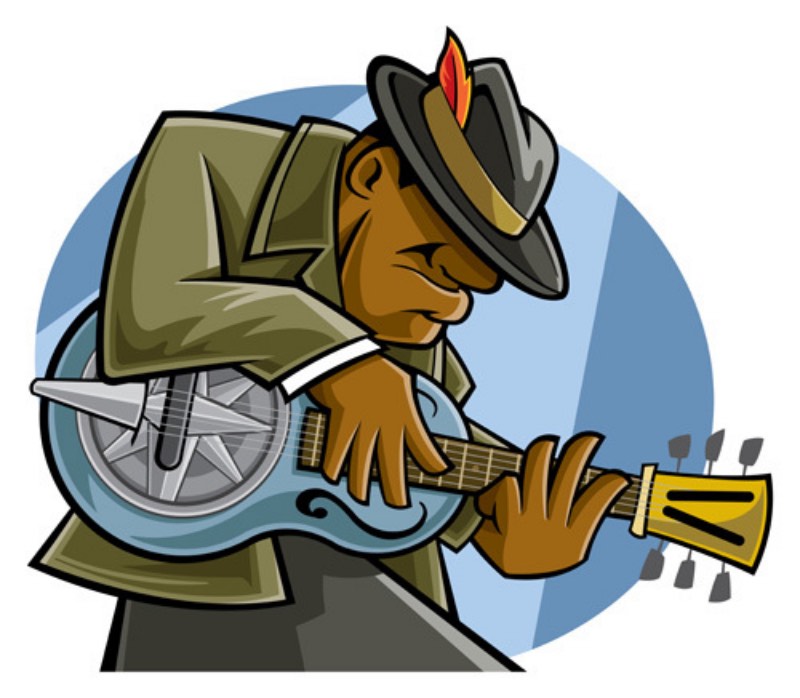
I got turned on to Blind Willie McTell @ publicdomain4u.com. I looked for more and found it. This song has haunted me for days. This renowned artist has an annual Blues festival named after him, honoring his contributions, but this was the only version of this song I could find. He was supposedly accompanied by his wife. Sadly little is known about this remarkable recording.
EARLY JAZZ WITH A HAWAIIAN THEME

Any 78 record collector has seen the name of Ben Selvin, who might have been the most prolific band leader of the 78 RPM record era. He also voiced early opposition to radio. This song “Don’t Say Aloha, When I Go” is early jazz at its best. This song has been recorded by many. This version by The Columbians is by far the most noteworthy. There is so much I don’t know about this version, but it’s great.
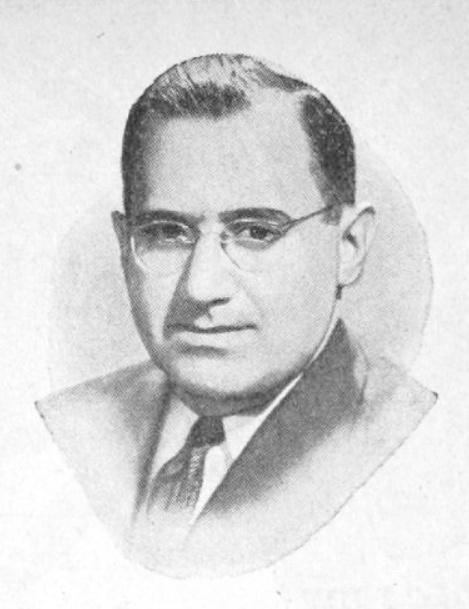
Ben Selvin
FIND THIS RARE TRUMPET RECORDING FROM THE BEST MUSIC LIBRARY ON OUR PLANET
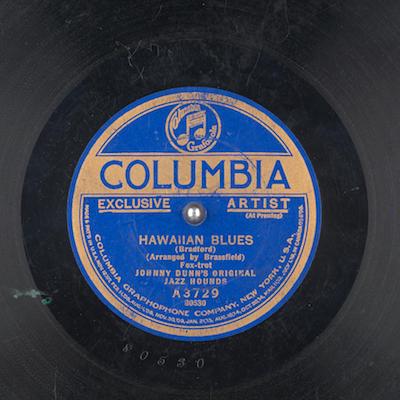
Noble work from Brewster Kahle, who founded the Internet Archive. They compiled a treasure trove of music recorded when the recording industry was in its infancy, and records were cylinders, or 78 RPM discs. From this collection I’ve learned so much about music that was made before I was born. Converting these recordings to digital storage is complex, and done by music-loving collectors. Serving these works on-demand is the Archive’s role, as the best music library on the planet. I found this stupendous recording by Johnny Dunn’s Original Jazz Hounds (not to be confused with Mamie Smith and her Jazz Hounds.) The trumpet work is great, once you’re past the 78 needle-noise at the beginning. “Hawaiian Blues” is performed by the first lineup of the Jazz Hounds, before they added Edith Wilson as vocalist.

Listen:
THE MUSIC BUSINESS FARTS DUST! HERE’S THE BIGGEST REASON WHY
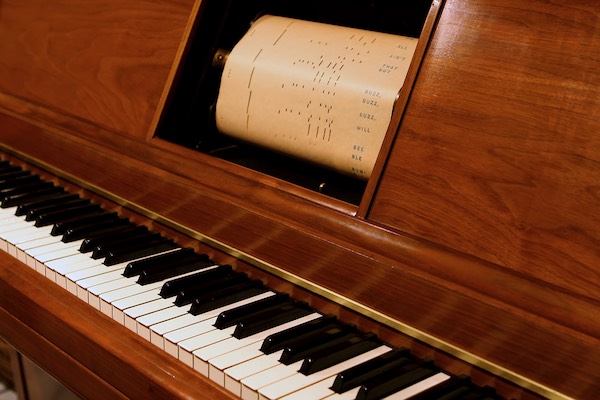
The music industry is awash in confusion. Here’s why: Ancient laws based on Player Pianos and piano rolls.
The laws and business systems in place to provide royalties to music creators are woefully outdated. Some of these laws go back to the Player Piano era, with only minor updates in the years since. With technology (digital streaming) vastly outpacing these “old” rules, what we’re seeing is gaps in copyright law, unfair rates, and huge loopholes that allow corporations to profit off the work of creators without paying music creators a cent.
As a songwriter, I’ve seen my work played thousands of times on popular streaming platforms. The compensation for those plays is dishearteningly low, and noting how quickly income for music is shifting from sales to streaming, I’m concerned that with this lack of modern thinkings, music is going to remain in the dark ages.
Here’s some of the music business’s backstory, and my attempt to explain how we got to the current copyright law dilemma.
****There is one glaring fact: IT WAS A MECHANICAL WORLD BACK THEN, the home/bar entertainment system was advanced machinery called, pianos. Popular music was monetized in the early 1900s by the sale of sheet music to live piano players, who then played the hits of the day on their pianos. Think of humans acting like a jukebox. That version of the music industry was disrupted by the invention of a mechanical piano, that made these songs come to life without a human piano player. This invention contained a mechanism that operated the piano action via pre-programmed music stored on a perforated paper called the “piano roll.”
With a piano roll and one of those newfangled mechanical pianos, a dance song like “The Charleston” became a hit and would quickly generate a lot more income than old sheet music industry, but without replacing the sheet music industry. This mechanical piano and the paper-modeled performance technology changed music consumption forever. It allowed for the same exact performance everywhere! The sale of these Player Pianos and “piano rolls” became the new products of the music industry, rewarding the one artist whose performance was used to model the roll.
The roll I selected here was performed by piano expert, James P. Johnson, and it demonstrates his piano brilliance. The mechanical piano, armed with a number of interchangeable rolls, resembles the rudimentary ingredients of a primitive jukebox. This became the basis for the “mechanical license” (a metric used to pay songwriters for a music sale), and interpretations of this existing law from 1923 (and updated in 1976) are used as the basis for current music business copyright law and music compensation.
HOW NUTS! A copyright law affecting us today was written in 1923. Wow, truly insane when you think about it!
Here’s “The Charleston.” This piano roll is a hit. A great example of the past!

